Results
-
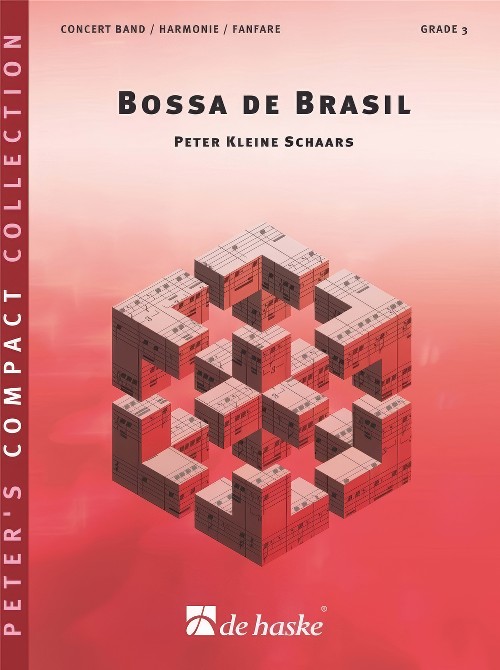 £60.99
£60.99Bossa de Brasil (Flexible Ensemble - Score and Parts) - Schaars, Peter Kleine
In late 1950s Brazil, a new music style influenced by jazz arose out of the samba: the bossa nova. This composition by Peter Kleine Schaars sounds just like a bossa nova should sound: catchy, warm, relaxed and with a touch of sensuality. Starting with a small group of players with only one soloist and minimal accompaniment, this bossa nova leads to a style-conscious grand orchestration for the whole ensemble, in which all voices participate equally. In addition to the rhythmic cells 2 and 4 of the Brazilian 2-4 clave, the cells 7 and 10 in particular are featured.Duration: 2.45
Estimated dispatch 7-14 working days
-
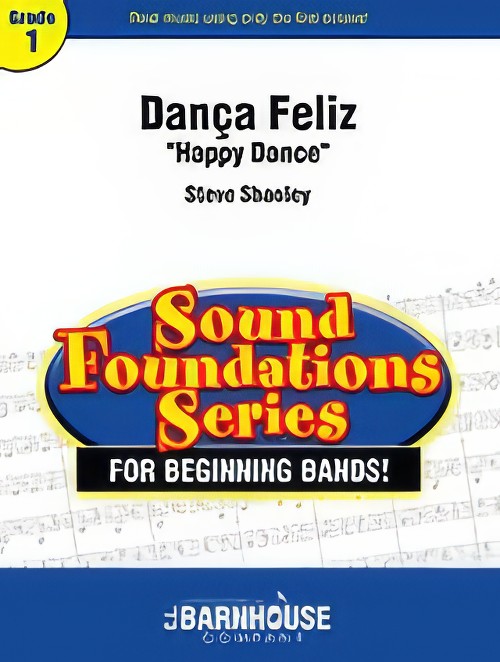 £45.00
£45.00Danca Feliz (Concert Band - Score and Parts) - Shanley, Steve
Teach your beginning band about traditional Brazilian culture with "Dan?a Feliz" (Happy Dance,) featuring fun melodies for all instruments, an infectious beat, and plenty of optional percussion parts. The annual Carnival festival in Brazil features parades led by "samba schools," and "Dan?a Feliz" will transform your band into a samba school for your next concert! Enjoyable music for all, and a great multi-cultural resource as well. Duration: 1.45
Estimated dispatch 7-14 working days
-
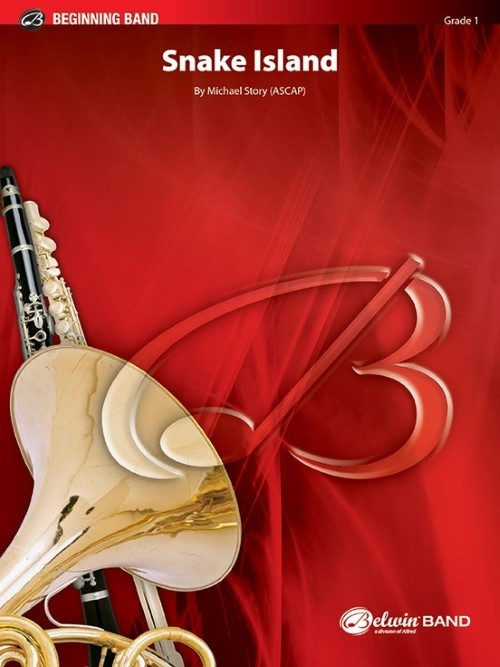 £52.95
£52.95Snake Island (Concert Band - Score and Parts) - Story, Michael
This perilous island just off the coast of Brazil is infested with so many deadly reptiles that humans are prohibited. An ominous introduction leads to a rhythmic musical exploration completely surrounded by water and camouflaged snakes that make their presence known. Slitheringly fun! Duration: 2:00
Estimated dispatch 7-14 working days
-
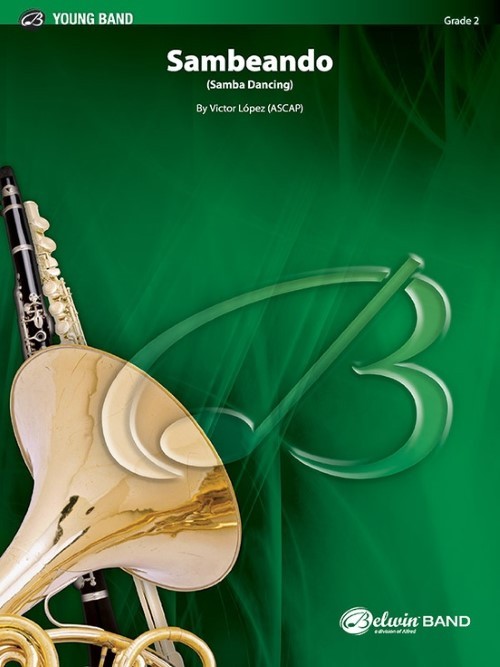 £60.50
£60.50Sambeando (Samba Dancing) (Concert Band - Score and Parts) - Lopez, Victor
Sambeando literally translates to "do the samba." Steeped in the musical traditions of Brazil, this composition by Victor L?pez is guaranteed to get your students musically excited and your audiences dancing in the aisles. Explore the exciting intricate rhythms and characteristic articulations for a tight performance. Host your own National Samba Day! Duration: 2.30
Estimated dispatch 7-14 working days
-
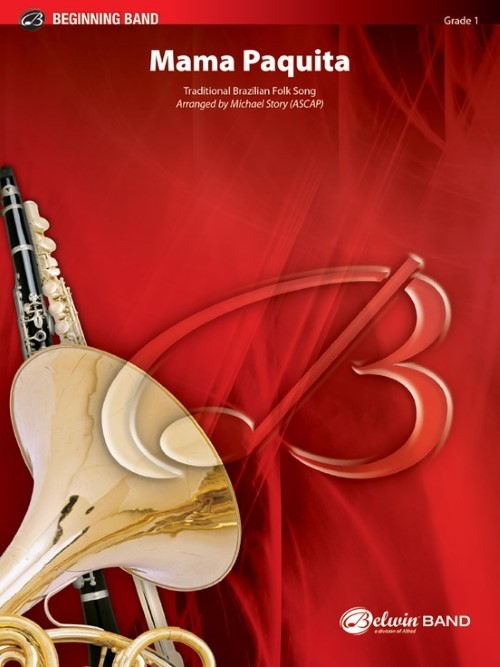 £51.50
£51.50Mama Paquita (Concert Band - Score and Parts) - Story, Michael
This bouncy and energetic traditional folk tune is popular in Brazil year-round, while closely associated with the Carnaval celebration leading to Ash Wednesday. A charming familiar tune with a delightful South American flavor will punctuate any concert program.Duration: 1:45
Estimated dispatch 7-14 working days
-
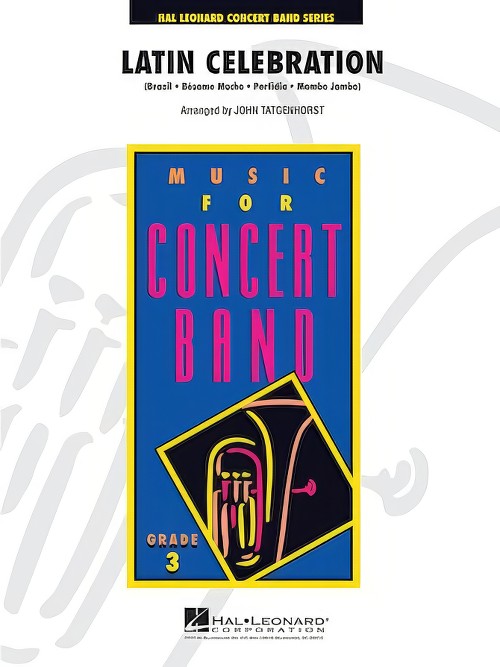 £64.99
£64.99Latin Celebration (Concert Band - Score and Parts) - Tatgenhorst, John
The fiery drive and rhythmic intensity of Latin music is brought to life in this medley of well-known classics. Featured are the tunes Brazil, Besame Mucho, Perfidia, and Mambo Jambo, all beautifully and effectively scored for concert band by John Tatgenhorst.
Estimated dispatch 7-14 working days
-
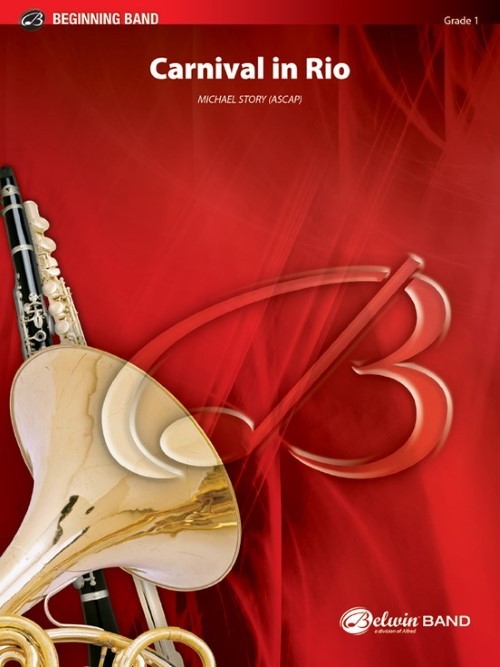 £50.50
£50.50Carnival in Rio (Concert Band - Score and Parts) - Story, Michael
Those of us who have not visited Brazil during Carnival must experience the wild celebrations through pictures, descriptions and, of course, music! Your percussion section sets up the South American rhythm and soon the winds add a spicy melodic line. This is the piece to play between the overture and march for needed contrast.Duration: 1.30
Estimated dispatch 7-14 working days
-
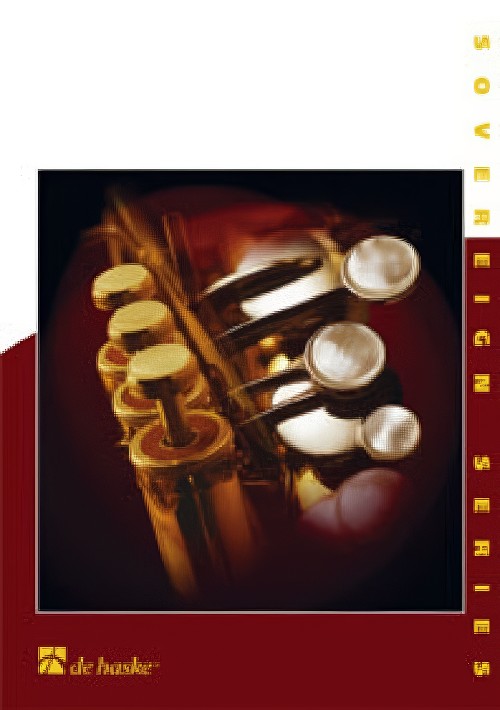 £179.99
£179.99Amazonia (Concert Band - Score and Pars) - Van der Roost, Jan
This major concert work consists of five movements:1st movement: La Laguna del Shimbe. Situated high up in the Andes mountains in Northern Peru are the Huaringas, a group of lagoons in isolated and mysterious surroundings. The water has healing powers and for centuries traditional healers have settled there in small villages. From far the sick come to the Huaringas to be treated in nightly rituals, in which the hallucinating juice of the San Pedro cactus gives the prophet a look inside his patient. The biggest lagoon is the "Laguna del Shimbe", one of the countless wells of the immense Amazon stream.2nd movement: Los Aguarunas. Further downstream in Northern Peru we come across the rain tribe of Los Aguarunas. It's a proud, beautiful and independent race, which has never succumbed to domination, not even from the Incas. They live from everything the forest has to offer: fish, fruit, plants... They also grow some crops and live as semi-nomads. They take their fate into their own hands and after having made contact with modern civilisation, they have integrated new elements into their lives without betraying their own ways.3rd movement: Mekaron. Mekaron is an Indian word meaning "picture", "soul", "essence". The Indians are the original inhabitants of the Amazon region. They either live in one place as a group or move around a large region. They all have their own political system, their own language and an intense social life. At the same time they are master of music and medicine. "Everywhere the white man goes, he leaves a wilderness behind him", wrote the North American Indian leader Seatl in 1885. As a result of these contacts with the whites, the disruption of most Indian societies began. (In this century alone, 80 tribes have vanished completely).4th movement: Ktuaj. This is the name of the initiating ceremony of the Krah tribe in the Brazilian state of Goias, in which young boys and girls enter adult life. They are cleansed with water, painted with red paint and covered with feathers, after which the ritual dance holds the entire tribe spell-bound.5th movement: Paulino Faiakan. In 1988 the Indian chiefs Faiakan and Raoni Kaiapo came to Europe to protest against the building of the Altamira dam in Brazil. As a result of the dam the Indians would be driven from their traditional land and enormous artificial would be created. The project was supported financially by, amongst others, the European Community. In February 1989 the Indian tribes around Altamira held a protest march for the first time in their history together. Amongst other things they paid tribute tot Chico Mendez, who, murdered in 1988, was the leader of the rubber syndicate and a fierce opponent of the destruction of the Brazilian rain forest. Brazilian and world opinion was awakened. The building of the dam was, albeit temporarily, stopped.Duration: 12:30
Estimated dispatch 7-14 working days
-
 £76.99
£76.99Down the Equator Wind Band Set (Score & Parts)
A March made in Brazil, which by itself perhaps is reason enough to add it to your repertoire. Cheerful , colourful and exotic. these are all terms applicable where 'Down the Equator' is concerned. 03:00
Estimated dispatch 7-14 working days
-
 £104.99
£104.99Ever so samba Wind Band Set (Score & Parts)
The rhythm of the samba was originally created in Africa and brought to Brazil by the slaves . Here it became the national dance. For every festive occasion and especially the carnival festivities (Rio de Janeiro) samba music is played. The World's Fair in New York (1939) was the reason to the biggest spread of the samba. The trumpet section gets an opportunity to feature in Ever so Samba. Together with the swinging percussion section they let you enjoy a South American party. 03:15
Estimated dispatch 7-14 working days
